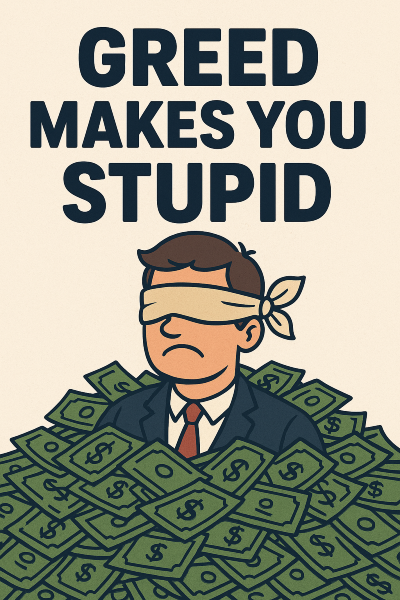Greed Makes You Stupid

A Field Note from the End of Economic Literacy
Greed is often mistaken for strategy. It flatters itself as vision. It calls itself “ambition” when selling, and “efficiency” when cutting. But at scale, it doesn’t optimize, it disfigures. It warps perception, shortens horizons, and hollows out the very systems it feeds on.
At its peak, greed stops being clever. It starts being stupid.
It forgets that every transaction requires a buyer. Every economy requires mutual benefit. Every system that extracts without reinvesting is a system preparing for collapse. Greed is the snake that thinks it’s clever for eating its own tail, until it runs out of body to chew.
We are watching this happen now.
Artificial intelligence is promising unimaginable productivity, but no one is planning for where the demand will come from when 80% of workers no longer earn wages. Corporations chase efficiency to the decimal point, and then wonder why no one has disposable income to consume what they produce. Entire governments pass tax cuts and budget constraints that shrink the consumer base, and then feign surprise when their own markets stall.
Greed sees this and shrugs.
It calls it a “correction.” It calls it “necessary disruption.” It calls it “unavoidable progress.” But what it won’t call it is what it is: a self-inflicted collapse, driven by the refusal to consider consequences beyond the next quarterly report.
Greed narrows. It refuses to model feedback loops. It assumes endless growth in a finite world. It prizes dominance, not durability. Its only loyalty is to the extraction layer, not the foundation beneath it.
This is not intelligence. It’s erosion wearing a mask of cleverness.
So yes, greed makes you stupid. Not because you were unintelligent to begin with, but because the more greed takes over, the less of your brain you’re allowed to use. The parts that care about balance, community, resilience, well they get overwritten. First by anger. Then by denial.
And finally by ruin.





Member discussion